Our last history update was written early in 2008 as we entered our 60th year. George Hunt was our president. We started monthly hikes aimed at families with young children. These were easy local hikes with special rewards being given to children who completed 3 hikes. These trips were popular and were continued for several more years. Hikers on a fall trip to McBee grade were startled when a paraglider landed just a few feet in front of them as they were starting out. The long history of giving out I-Mac patches to new members ended in 2008.<br
Steve Wisness was our president in 2009. Our formal celebration of our 60th anniversary was held in February with a celebration dinner being held in place of our regular annual banquet. John Young and Lee Daniel were our speakers. They shared stories and pictures of our club’s early days. Door prizes from REI were given out. On a late January hike up Badger Mt., a helicopter landed while our party was on the top. The pilot had wondered why there was a large group of people up there. He offered anyone interested a ride down. Three people took him up on the offer and were flown down to the parking lot. A local sporting goods store, which had been the only local source of cross country ski rentals closed. I-Mac bought their inventory which is now part of our rental gear.
Steve Wisness was president again in 2010. A number of local public talks were given in a joint effort of I-Mac and local libraries. They featured various club members talking about local hiking opportunities, light weight backing etc. Two very active couples left the Tri-Cities. Olaf and Patsy Rasmussen, who gave many slide shows of their world travels moved to Colorado and Skip and Linda Claeson moved to Leavenworth where they have hosted several club functions since moving.
Our 2011 president was Randy Smith. We lost two members who contributed a great deal to the club. Honorary member Dean Dickinson, who had been ill for a number of years, died at age 82. Brad Benton was killed in a motorcycle accident. Discover passes are now required when hiking etc. on Washington state lands. On one of our hikes, the group had some scary moments when lightning struck very near them. Jane Fox set up an I-Mac Facebook page.
Randy Smith was president again in 2012. A Google Group was set up by Paul Meier for club members to be able to exchange information related to club events. I-Mac started helping out with the Reel Rock film series which is sponsored by the Tri-Cities Court Club and REI. Films shown are Warren Miller outdoor adventure shows. Money raised by the showings have been donated to I-Mac which we, in turn, donate to Friends of Badger Mountain. This cooperative effort continues to the present.
In 2013 Steve Ghan is the president. On one trip a guest developed problems with his boots early on, so he just took them off and hiked barefoot the rest of the trip. It’s not known if he ever hiked with us again.
Steve Ghan was president again in 2014. A great deal of winter snow affected club trips. When members on a 2 day Gold Hill trip returned to their cars, they found 14 inches of snow on their cars. Sherry Antoniak recruited help and instituted a number of training classes which we hadn’t held in several years. The club investigated and purchased a personal locator beacon to be carried on club trips so that an emergency rescue could be summoned if needed.
Randy Smith was president in 2015 and George Meriwether was elected to honorary membership. An unfortunate accident resulted in one member breaking a bone when she stepped to the side of a narrow rocky trail on a steep slope to let a person coming up the trail holding a dog go by. It took a long time to get help in to carry her down, but the others on the trip pitched in to help in every way possible. There is now a new trail on Badger Mt. named for Jim Langdon who has devoted a great deal of time to building/maintaining trails both on Badger/Candy mountains and up in the Cascades.
Our 2016 president was Chuck Wierman and George Hunt was elected to honorary membership. The club eliminates trip fees. A committee is formed to help welcome guests and new members. At the annual banquet Paul Meier, who soon moved to Missouri, was honored for his many contributions to the club. With Paul moving, the Google Group ended so Jaynee Levy started an Ad Hoc Adventure group for anyone wishing to invite others on spur of the moment non-club sponsored trips. One club trip was cut short due to a very high number of downed trees on the trail. On the way out, they counted 213 trees down. Many club members help build a trail on Candy Mountain.
Chuck Wierman was president again in 2017. After 16 years as Yodeler editor, Jim Langdon turns those duties over to Jen Schoonover, but in August, Jen and Dwight move from the Tri-Cities, so the Yodeler production is taken over by a committee of three. The club starts holding a few easy hikes known as TIE (take it easy) hikes. An igloo building trip is held with 2 igloos being built and occupied overnight. It was a very nasty and snowy winter, locally as well as in the mountains, which caused many changes in the winter schedule. One of the club’s earliest members, honorary member John Young, died at age 92. On a happier note, our president, Chuck Wierman, and our social chair, Chris Faught, get married. Paul Krupin starts writing a series of hiking related articles for the Tri-City Herald. His membership in I-Mac is mentioned at the end of each article. Toward the end of the summer a multitude of forest fires hit the northwest which create dense smoke throughout the region and close a number of highways and trails. The Columbia Gorge is especially hard hit and it will likely be number of years before trails there are reopened.
2018 is just starting as of this writing. Nancy Krupin is president. The Schoonovers are returning to the Tri-Cities with Jen taking over the publications duties again. Trail building/maintenance remains a priority of the club. Climbing activities have returned to the club after having fallen by the wayside for awhile. Technology is playing a bigger role in outdoor activities now. Cell phone coverage has expanded, but does not cover all areas where we hike/climb/ski. There are now devices which can summon emergency help or send specific messages from any location which some of our members carry, and some members carry GPS devices. There were a number of interesting animal encounters this past decade. The only cougar sited was dead, but a big horn sheep posed for pictures at length and an albino turkey and a herd of llamas were seen running wild.
At present, (February, 2018), our membership stands at 210. Thanks to all the people who have worked and continue to work to make all this possible.
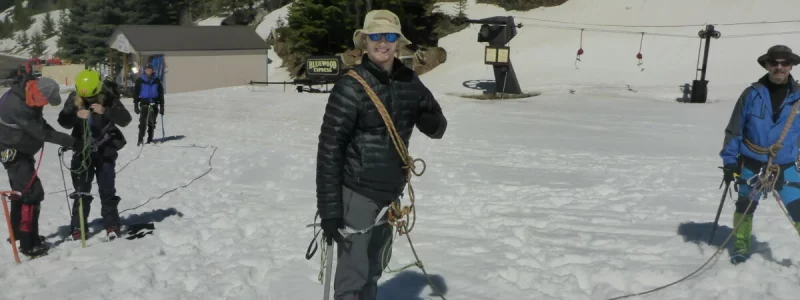


I-MAC enjoys providing the community with opportunities to come together with other outdoor enthusiasts to learn and share. The Reel Rock Film Fest is one such event. This annual event showcases a set of spectacular films about rock climbing (Think Free Solo, only shorter). REI and local climbing clubs toss prizes into the crowd during the intermissions. Proceeds from the event go to worthy organizations selected by the I-MAC Board.
We also host guest speakers from outside the area to provide presentations on mountain climbs, ski tours, hiking and other backcountry adventures. I-MAC members also provide presentations on a variety of topics from epic club hikes to conservation.
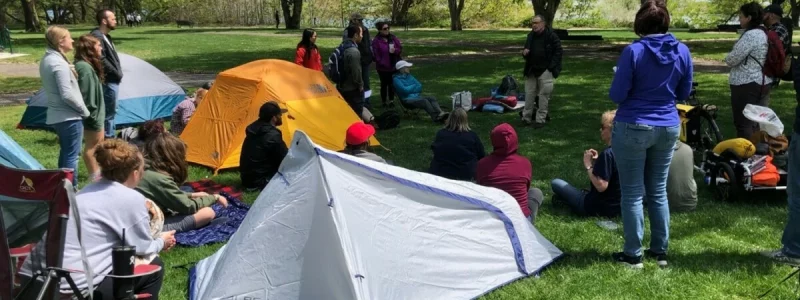
Are you interested in learning how to backpack? If yes, then the I-MAC Backpacking School is for you. This free two-day class is offered nearly every year. A combination of indoor and outdoor classes teaches you what you need to know to start backpacking on your own.
The purpose of the backpacking school is to prepare participants for comfortable and safe multi-day backpacking trips. No prior experience in the outdoors is required. Each topic is taught by an I-MAC member with years of experience.
Topics include:
· The ten essentials
· Training for a backpacking trip
· Gear (e.g., tents, sleep systems, water filters, stoves, backpacks)
· Nutrition and cooking
· Water purification
· Route planning
· Navigation including map & compass and digital navigation
The first day consists of lecture-style presentations. The second day includes outdoor field demonstrations of equipment and techniques at a local park. The school culminates in overnight backpacking trips led by I-MAC trip leaders.
Before the course, we recommend you get the book The Backpacker’s Field Manual, by Rick Curtis, and read as much as you can (it is not available through REI). We also recommend that you join I-MAC before the school. Membership will get you access to more information about our trips, both before and after, and about our community.
The school is free and open to the public.
Registration is required.
For inquires, please email to backpacking@imacnw.org.
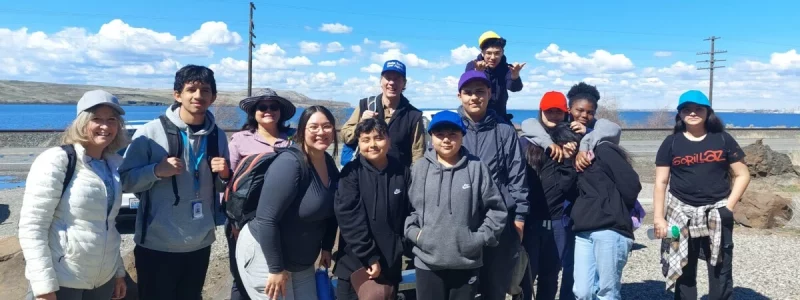
I-MAC partners with local community organizations to teach youth outdoor skills and provide outdoor experiences, such as hiking. I-MAC has partnered with Boys and Girls Club of Benton and Franklin Countries as well as Girls Scouts of Eastern Washington & Northern Idaho.
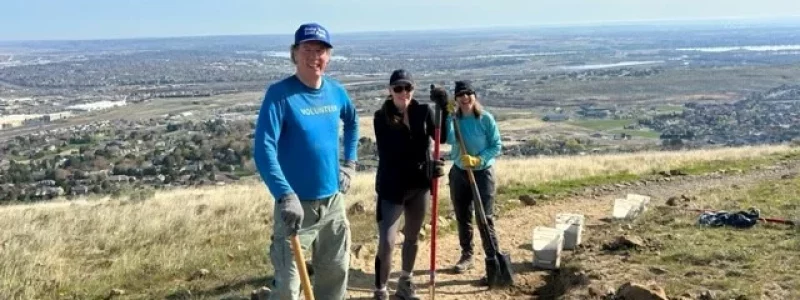
I-MAC focuses most of their trail work volunteer time on local trails, specifically Badger and Candy Mountains. These trails are used by 300,000 people every year. The trail work is led by I-MAC’s Jim Langdon, who is the FRIENDS OF BADGER MOUNTAIN TRAILMASTER.
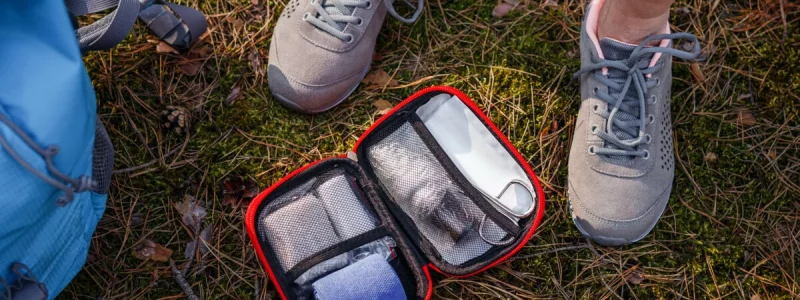
I-MAC hosts Wilderness First Aid classes, provided by outside agencies, on a semi-regular basis. The most recent class was presented by Longleaf Wilderness Medicine and was held at Columbia Basin College, using both indoor and outdoor spaces. Instruction includes both lecture and hands-on practice. Classes are open to the public and I-MAC members can register before the public.
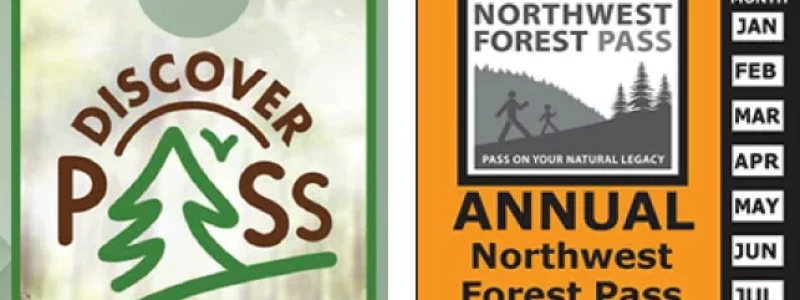
Trip participants are expected to pay drivers a fee to help cover the cost of fuel and vehicle usage. The per milage rate is occasionally adjusted to reflect the general cost of fuel. We want drivers to feel comfortable that their costs are covered, but we would also never want the cost of carpooling to prevent someone from going on a trip. We aim to keep the rate at an acceptable compromise for everyone.
The current mileage rate of $0.12 per mile was voted on by the I-MAC board in April 2023.
On the first day of the trip, be prepared to pay your driver in cash for the amount noted in the trip cost section of the trip description. Checks are not accepted. Some drivers may accept Venmo or other cash apps. Check with the driver prior to the trip if you would like to pay with a cash app.
PASSES FOR PUBLIC LANDS
We are fortunate to have easy access to city, county, state, and federal public lands. Some of these parks and forest are free while other charge fees. Depending on who manages the land, the required fee or pass is different. Below is information about the three primary passes you’ll need to enjoy federal and state public lands in the Pacific Northwest.
Annual Washington State Parks Discover Pass
Discover Pass is a permit that gives you access to state parks and recreation lands in Washington.
Annual Northwest Forest Pass
The Annual Northwest Forest Pass is honored at all US Forest Service operated recreation sites in Washington and Oregon where a day use fee is required.
America the Beautiful Federal Recreation Lands Passes
There are several different America the Beautiful passes to choose from depending on certain criteria. All the passes cover entrance fees at national parks and national wildlife refuges as well as standard amenity fees (day use fees) at national forests and grasslands, and at lands managed by the Bureau of Land Management, Bureau of Reclamation and US Army Corps of Engineers.
Locally, many of these passes can be purchased at REI. All of the America the Beautiful passes are available at the McNary National Wildlife Refuge office at 64 Maple Street in Burbank. All above-listed passes are also available for purchase online.
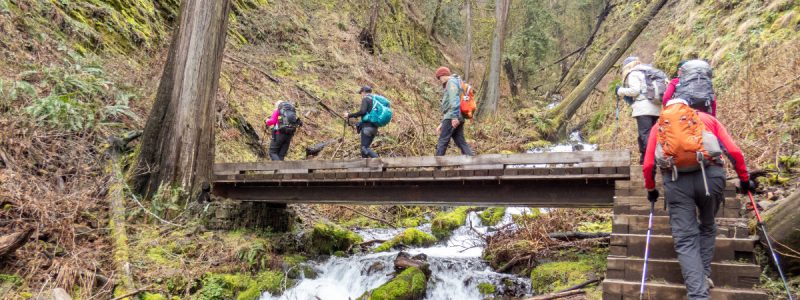
1 – Easy
Less than 6 miles and less than 1,000-ft elevation gain per day
2 – Moderate
6 to 10 miles or 1,000 to 2,000-ft elevation gain per day.
3 – Strenuous
10 to 12 miles or 2,000 to 3,000-ft elevation gain per day
4 – Very Strenuous
More than 12 miles or more than 3,000-ft elevation per day.
0 – Class
No experience needed. This is a training class.
1 – Easy
Minimum experience needed, ample opportunity for instruction.
2 – Moderate
Moderate experience needed, still a good opportunity for instruction.
3 – Strenuous
Advanced levels of experience needed, little opportunity for instruction.
4 – Very Strenuous
Must be entirely self-sufficient, no instruction provided.
0 – Class
No skills needed. This is a training class.
1 – Easy
Less than 5 miles and less than 500 ft elevation gain.
2 – Moderate
5 to 8 miles or 500 ft to 1,500 ft elevation gain.
3 – Strenuous
More than 8 miles or more than 1,500 ft elevation gain.
4 – Very Strenuous
Usually requires great effort, could include overnight outings requiring full packs.
0 – Class
No skills needed. This is a training class.
1 – Easy
Less than 6 miles and less than 500 ft elevation gain. Minimal stopping and turning skills necessary.
2 – Moderate
6 to 11 miles or 500 feet to 1,500 ft elevation gain. Stopping and turning skills are important.
3 – Strenuous
More than 11 miles, or greater than 1,500 ft elevation gain. Stopping and turning skills a must.
4 – Very Strenuous
Usually requires great effort and advanced skills. This could include overnight outings requiring full packs.
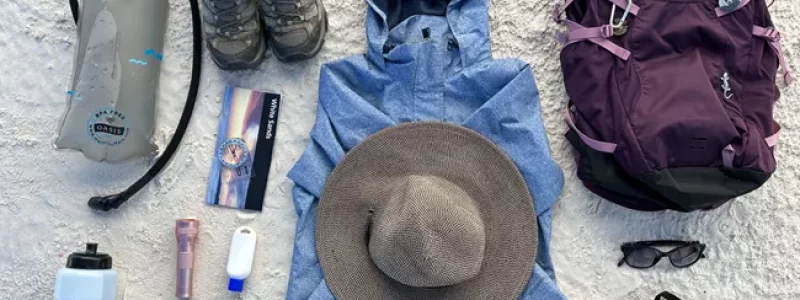
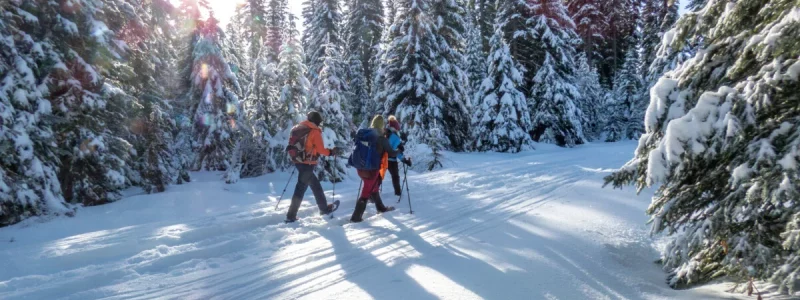
Check out the I-MAC ACTIVITY CALENDAR for upcoming trips. If you are interested in joining an I-MAC adventure, review the ACTIVITY CLASSIFICATION and TRIP COSTS & PASSES pages before you sign up to ensure the trip is right for you.
Each participant is responsible for their own safety and being prepared. Planning and preparation start with the 10 ESSENTIALS and staying up-to-date on road and trail conditions, permit requirements, party size limits, snowpack, wildfires, and weather.
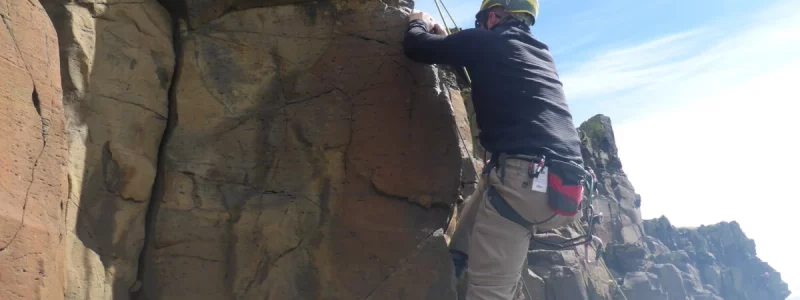
Each participant is responsible for their own safety and being prepared. Planning and preparation start with the 10 ESSENTIALS and staying up-to-date on road and trail conditions, permit requirements, party size limits, snowpack, wildfires, and weather.
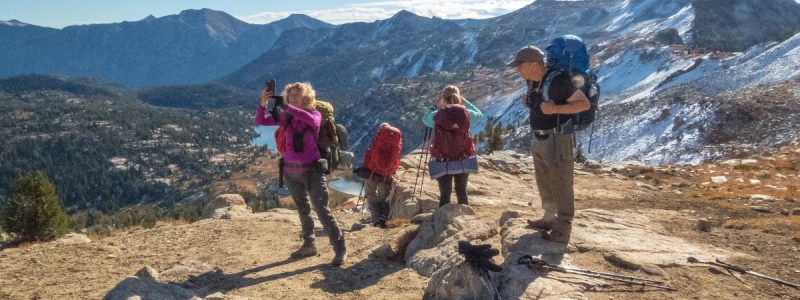
Are you looking to extend your outdoor adventure beyond day hikes? Backpacking is similar to hiking except that you bring all your gear with you including food, clothing, sleeping pad and bag, tent, and other personal items. Backpacking requires physical conditioning to ensure you have the stamina to carry the extra weight and be on the move for multiple days in a row. It is also important to have knowledge of map reading, Leave No Trace Principles, and and basic outdoor skills.
I-MAC members lead backpacking trips from easy overnight trips to challenging multi-day adventures even in the winter! Backpacking is a wonderful way to explore hard to reach locations and get off grid for a while.
I-IMAC offers a backpacking school once a year, which is a combination of indoor and outdoor classes designed to teach you what you need to know to get started on your own backpacking adventure. About once a year, I-MAC sponsors a Wilderness First Aid Class for members. The information learned in these classes can help save a life when out in the backcountry.
Check out the I-MAC activity calendar for upcoming trips. If you are interested in joining an I-MAC adventure, review the Activity Classification and Trip Costs & Passes pages before you sign up to ensure the trip is right for you.
Each participant is responsible for their own safety and being prepared. Planning and preparation start with the 10 essentials and staying up-to-date on road and trail conditions, permit requirements, party size limits, snowpack, wildfires, and weather.
Learn More